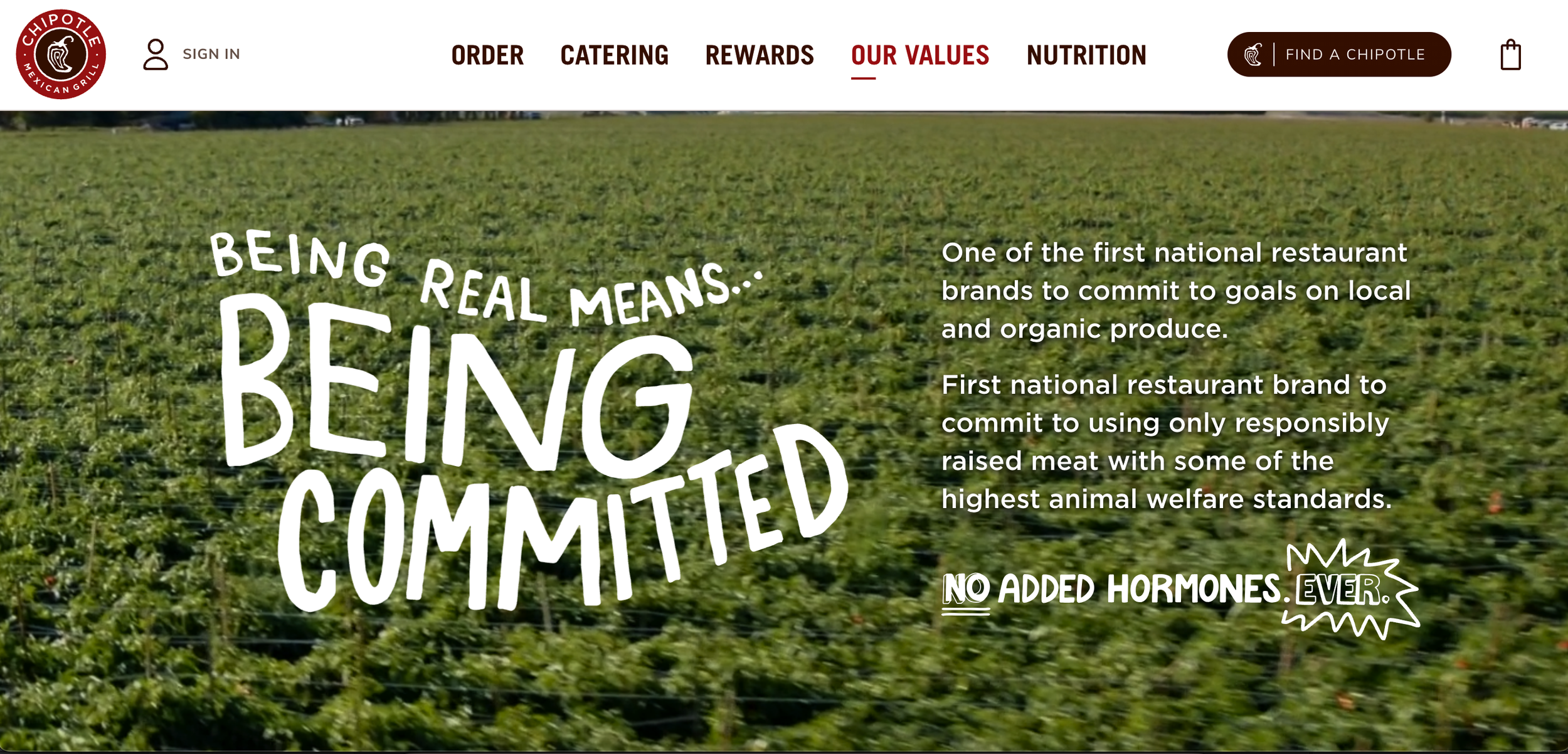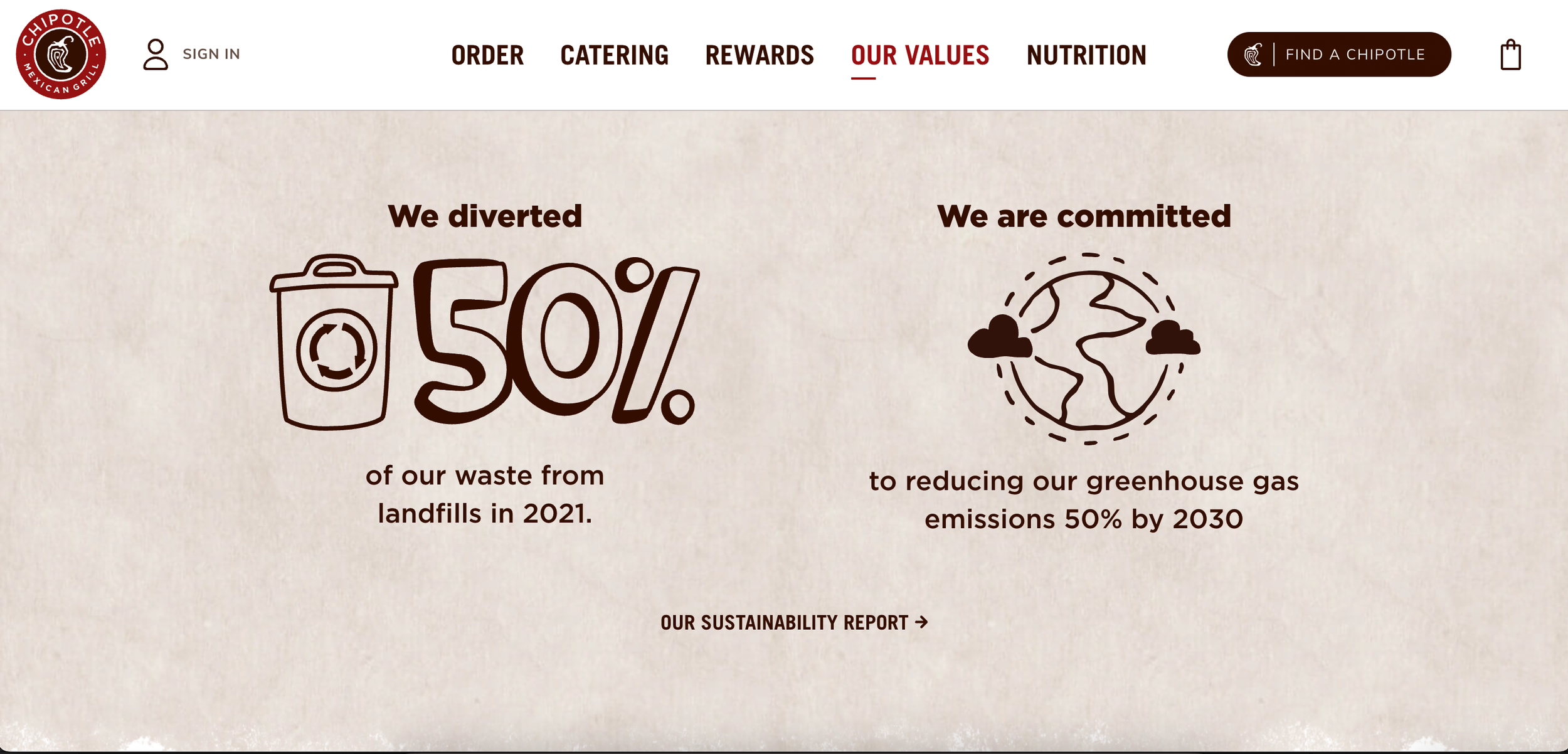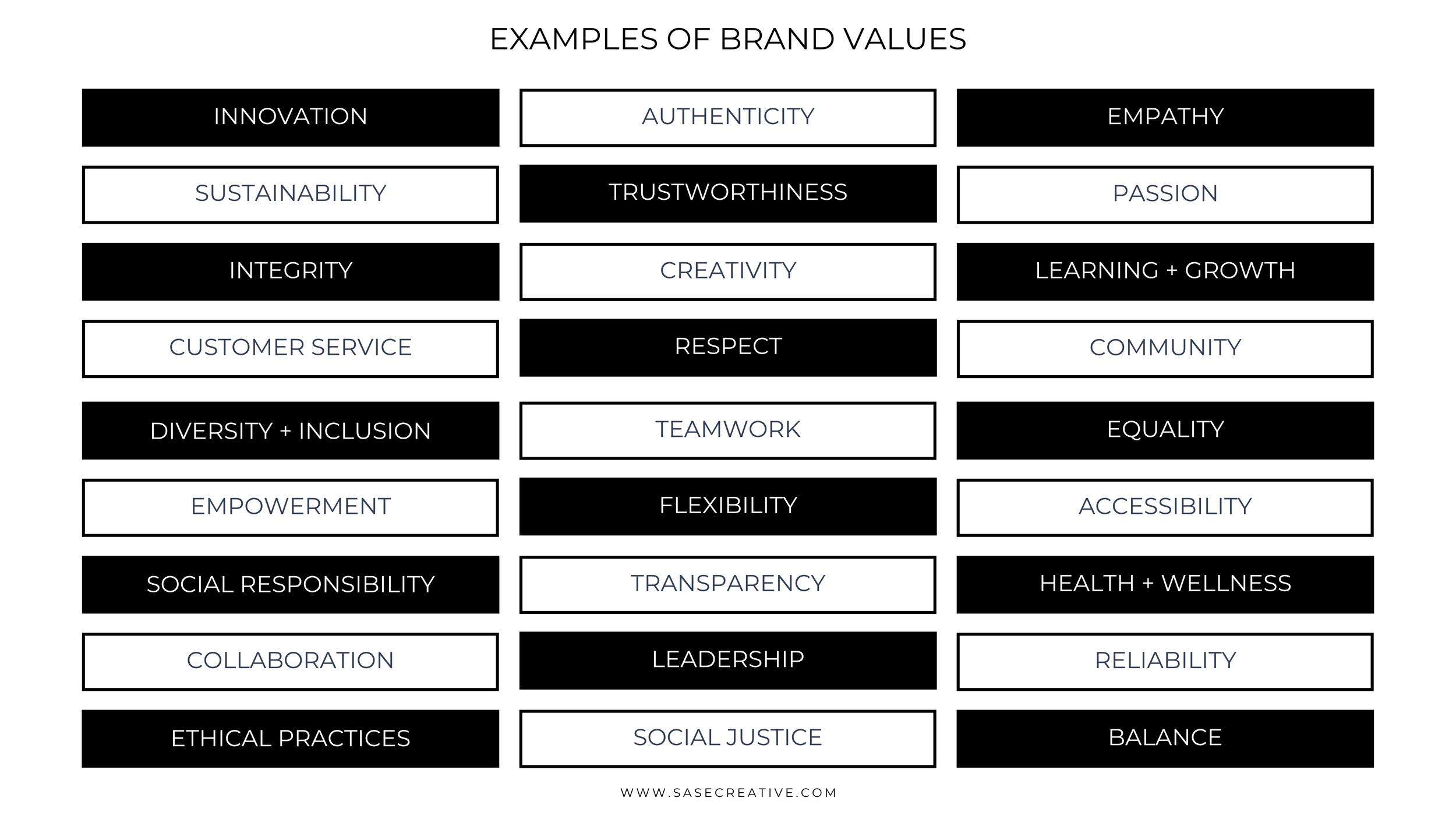How to Build a Brand with Strong Values
A recent research study by Google Cloud, conducted by the Harris Poll, reveals a significant shift in consumer behavior towards values. While price is a crucial consideration, shoppers are focusing on the values of the brands they choose to support.
The study found that 82% of shoppers desire a brand's values to align with their own. This shows that consumers are seeking deeper connections with brands that share their values.
The research highlights that consumers are not merely passive observers but actively making choices based on their values. Another interesting part of the report showed that three-quarters of those surveyed shoppers reported that they had discontinued their relationship with a brand due to a conflict in values.
The study found that 82% of shoppers desire a brand's values to align with their own. This indicates that consumers are seeking deeper connections with brands that share their principles and beliefs.
These findings underscore the growing significance of brand values in shaping consumer decisions. Beyond traditional factors like price and product features, consumers are now seeking alignment with the values that resonate with their personal identities and convictions. To succeed in today's marketplace, brands must recognize and prioritize the importance of fostering strong values that connect with their target audience.
By understanding and embracing this paradigm shift, brands have an opportunity to cultivate a loyal customer base and build lasting relationships. Aligning values with consumers not only enhances brand loyalty but also serves as a powerful differentiating factor in an increasingly competitive landscape. Let’s take a look at how popular brands have used values to make their brand stand out.
Chipotle Mexican Grill, the popular fast-casual restaurant chain, has embraced a set of core values that have shaped its identity and revolutionized the fast-food industry. These values are centered around food with integrity, sustainability, and a commitment to making a positive impact.
One of the key aspects of Chipotle's values is its focus on sourcing high-quality ingredients from responsible and ethical suppliers. They prioritize using naturally raised meats, organic produce, and non-GMO ingredients whenever possible. This commitment to food integrity not only ensures that customers are getting healthier options but also supports sustainable farming practices and promotes animal welfare.
Chipotle believes in establishing direct relationships with farmers and growers to create a more sustainable and transparent food system. In 2011, Chipotle faced a challenge when a frost destroyed the majority of its supply of locally sourced tomatoes in the Pacific Northwest. Instead of resorting to conventional suppliers, Chipotle decided to keep its promise of sourcing locally and found a creative solution.
Chipotle partnered with a nearby small-scale farm that specialized in growing tomatoes using organic and sustainable methods. Although the farm's tomatoes were not affected by the frost, they were not yet at the scale to meet Chipotle's demand. Rather than walking away, Chipotle made a long-term commitment to the farm, providing financial support, technical assistance, and a guaranteed market for their tomatoes. This collaboration helped the farm expand its operations and become a reliable supplier for Chipotle, showcasing the brand's dedication to supporting local communities and sustainable agriculture.
By choosing to invest in and partner with smaller, responsible suppliers, Chipotle not only maintained its commitment to quality but also contributed to the growth and success of local farming communities.
Chipotle Mexican Grill is also committed to reducing packaging waste and implementing sustainable packaging practices. They recognize the importance of minimizing their environmental footprint and have taken significant steps to reduce packaging waste across their operations. In many ways, Chipotle is a leader in the fast food industry on sustainability and reducing packaging waste.
Here are some of the way Chipotle has reduced packaging in their stores:
Sustainable Sourcing: Chipotle aims to source packaging materials that are environmentally friendly and sustainable. They prioritize materials that are recyclable, compostable, or made from renewable resources.
Minimal Packaging: Chipotle has adopted a minimalist approach to packaging, using only what is necessary to safely and efficiently serve their food. They strive to strike a balance between functionality and waste reduction.
Elimination of Foam: Chipotle has eliminated the use of foam or expanded polystyrene (EPS) packaging, which is known for its environmental impact. This move has reduced their overall waste footprint and helped protect the environment.
Compostable and Recyclable Packaging: Chipotle has transitioned to packaging materials that are compostable or recyclable whenever possible. This allows customers to dispose of their packaging responsibly, reducing landfill waste.
Partnership with Sustainable Suppliers: Chipotle works closely with their suppliers to ensure the use of sustainable packaging materials. They collaborate with companies that share their commitment to environmental responsibility.
In-Store Recycling and Composting: Chipotle encourages customers to recycle their packaging materials by providing recycling bins in their stores. Additionally, they have implemented composting programs in some locations, diverting food waste and compostable packaging from landfills.
Continuous Improvement: Chipotle is dedicated to continually evaluating and improving their packaging practices. They explore new innovations and technologies that can further enhance their packaging sustainability and waste reduction efforts.
Chipotle's focus on packaging waste reduction reflects their broader commitment to sustainable practices and environmental stewardship. By prioritizing sustainable sourcing, minimal packaging, and recycling initiatives, Chipotle is actively working to reduce their environmental impact and inspire positive change within the fast-food industry.
Leading with values can be a powerful way for brands to connect with consumers, differentiate themselves from competitors, and drive long-term success. By staying true to its values and effectively communicating them to customers, a brand can create a deeper, more meaningful relationship with its audience.
How to Pick Your Brand Values
Now, let’s talk about how to pick your brand values or build your brand around values. To start, make sure you spend time defining your brand values.
Understand Your Purpose: To establish strong brand values, start by understanding your purpose as a business. Reflect on why you exist, what drives you, and the impact you aspire to create. Consider the problems you aim to solve or the positive change you want to bring to your industry or society. A clear purpose will lay the foundation for your brand values.
Define Your Target Audience: Identify your target audience and understand their values, preferences, and aspirations. Conduct market research, surveys, and engage in social listening to gain insights into their needs and beliefs. This knowledge will help you align your brand values with those of your target audience, fostering a stronger connection.
Brainstorm Core Values: Gather your team and engage in a brainstorming session to identify the core values that reflect your purpose and resonate with your target audience. Consider the ethical principles, beliefs, and behaviors that define your brand. Encourage open and honest discussions to ensure everyone's input is heard.
Prioritize and Narrow Down: Once you have a list of potential values, prioritize them based on their importance and relevance to your brand identity. You may have numerous values, but it's essential to focus on a select few that truly define your brand and can be effectively communicated to your audience.
Ensure Authenticity: Authenticity is key when it comes to brand values. It's crucial to choose values that genuinely reflect your brand's identity and can be consistently upheld throughout your organization. Consumers can quickly identify inauthenticity, so ensure your values align with your actions and company culture.
Communicate and Embed: Once you have defined your brand values, communicate them effectively through your marketing efforts, website, social media, and other brand touch points. Consistently reinforce these values internally to foster a culture that embraces them. Your employees should embody these values and understand how they relate to their roles.
Measure and Adapt: Regularly measure and assess how well your brand values are resonating with your target audience. Collect feedback, monitor social media conversations, and conduct surveys to gauge consumer perception. If necessary, be open to revisiting and refining your values to stay aligned with evolving market dynamics and societal changes.
Stay Consistent: Consistency is key to building a brand around values. Ensure that every aspect of your brand, from visual identity to customer experience, reflects and reinforces your values. Consistency builds trust and reinforces your brand's authenticity.
Watts Change Agency uses bright changing colors to show they value creating change in a modern way.
Examples of Brand Values
By consciously choosing and embodying values that align with your brand's purpose, you can differentiate yourself from competitors and cultivate a loyal customer base. Whether it's fostering innovation, championing sustainability, or promoting integrity, the values you choose will guide your decision-making, shape your company culture, and influence how you interact with customers.
Remember, selecting brand values is not a one-time task. It requires continuous evaluation, adaptation, and alignment with evolving market dynamics and societal changes. Regularly assess how well your values resonate with your target audience and be open to refining them as needed.
Whether it's fostering innovation, championing sustainability, or promoting integrity, the values you choose will guide your decision-making, shape your company culture, and influence how you interact with customers. These are just a few examples of the many values that can guide a brand's actions and decisions.
Brand values can vary from company to company, and are often unique to the specific brand and its goals. However, some common brand values include:
Innovation
Sustainability
Integrity
Customer Service
Diversity and Inclusion
Empowerment
Social Responsibility
Collaboration
Authenticity
Trustworthiness
Creativity
Respect
Teamwork
Flexibility
Transparency
Leadership
Empathy
Passion
Learning and Growth
Community
Equality
Accessibility
Health and Wellness
Reliability
Ethical Practices
Honesty
Social Justice
Balance
These are just a few examples of the many values that can guide a brand's actions and decisions. Each brand will have its own unique set of values that align with its vision and goals.
Building a brand around values goes beyond mere statements or marketing strategies. It requires authenticity, consistency, and a genuine commitment to living up to those values in every aspect of your business. When your brand values become embedded in your organizational DNA, they will drive your actions, influence customer perceptions, and inspire trust and loyalty.
By consciously building your brand around strong values, you have the power to create a positive impact, connect with your audience on a deeper level, and establish a lasting legacy that extends beyond your products or services. So, take the time to define and embrace your brand values, and watch as your brand becomes a beacon of purpose and authenticity in the hearts and minds of your customers.
Is your brand in need of a refresh? Maybe you just need help building your mission and vision. We can help. Here’s a free workbook to talk you through how to define your brand. Download today for free by clicking the button below.
Need help with your visual brand identity? Get in touch with us today to learn more about our process.





